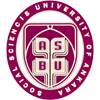
Erasmus+ is the EU programme in the fields of education, training, youth and sport. It aims to boost people’s personal development and job prospects. It supports all sectors of education and training, as well as nonformal learning for youth, volunteering and grassroots sport.
The programme supports:
- Opportunities to study, train, gain work experience or volunteer abroad;
- Education, training and youth sector staff to teach or learn abroad;
- The development of digital education and the use of ICTs;
- Language learning;
- Recognition of skills, including those learned outside the formal education system;
- Strategic Partnerships among educational institutions and youth organisations with peers in other countries in both their own sector and other sectors, in order to foster quality improvements and innovation;
- Knowledge Alliances and Sector Skills Alliances, to address skills gaps and foster entrepreneurship by improving curricula and qualifications through cooperation between the worlds of work and education;
- A loan guarantee facility for master’s degree students to finance their studies in another country;
- Teaching and research on European integration;
- Exchanges, cooperation and capacity building in higher education and the youth sector worldwide;
- Initiatives to foster innovation in pedagogy, and progressive policy reform at national level through Prospective Initiative;
- Good governance in sport and initiatives against match-fixing, doping, violence, racism and intolerance, particularly in grassroots sport.
Erasmus is the sub-programme aiming exchange of both students and staff as well as co-operation actions between higher education institutions across Europe.
The Programme is named after the humanist and theologian Desiderius Erasmus of Rotterdam (1465-1536) whose travels for work and study took in the era’s great centres of learning, including Paris, Leuven and Cambridge. By leaving his fortune to the University of Basel, he became a pioneer of the mobility grants, which now bear his name. Like the man, the Erasmus programme places great importance on mobility and furthering career prospects through learning.
The following countries can fully take part in all the actions of the Erasmus+ Programme:
|
Member States of the European Union (EU) |
|||
|
Belgium |
Greece |
Lithuania |
Portugal |
|
Bulgaria |
Spain |
Luxembourg |
Romania |
|
Czech Republic |
France |
Hungary |
Slovenia |
|
Denmark |
Croatia |
Malta |
Slovakia |
|
Germany |
Italy |
Netherlands |
Finland |
|
Estonia |
S. Cyprus |
Austria |
Sweden |
|
Ireland |
Latvia |
Poland |
|
|
Non-EU Programme Countries |
||
|
Iceland |
Macedonia |
Serbia |
|
Liechtenstein |
Norway |
Turkey |
|
|
||
In Turkey, the Erasmus+ Programme is carried out by the European Commission in cooperation with the Turkish National Agency.
For more information, please visit http://ec.europa.eu/programmes/erasmus-plus/
For more information about the Turkish National Agency, please visit www.ua.gov.tr
